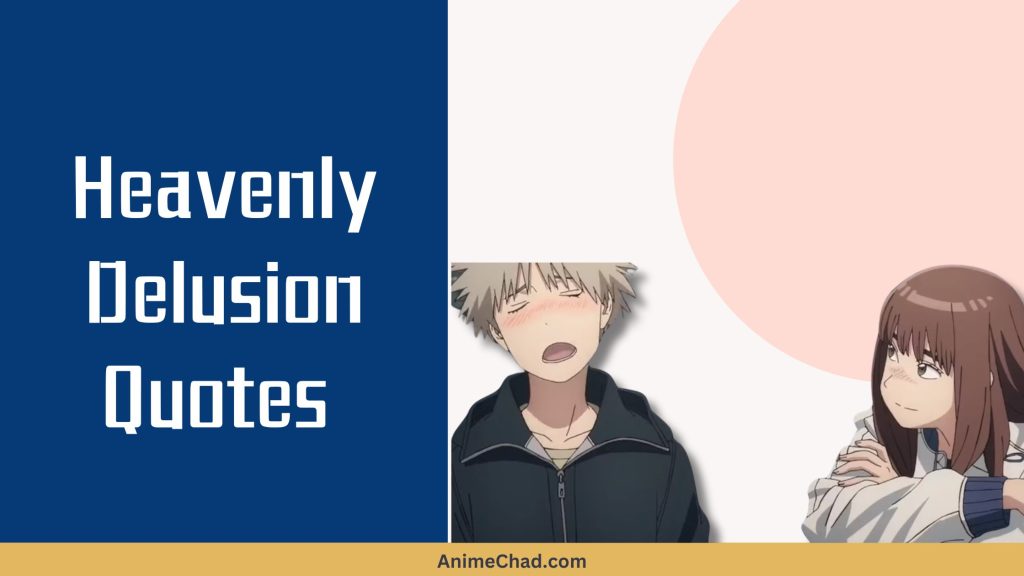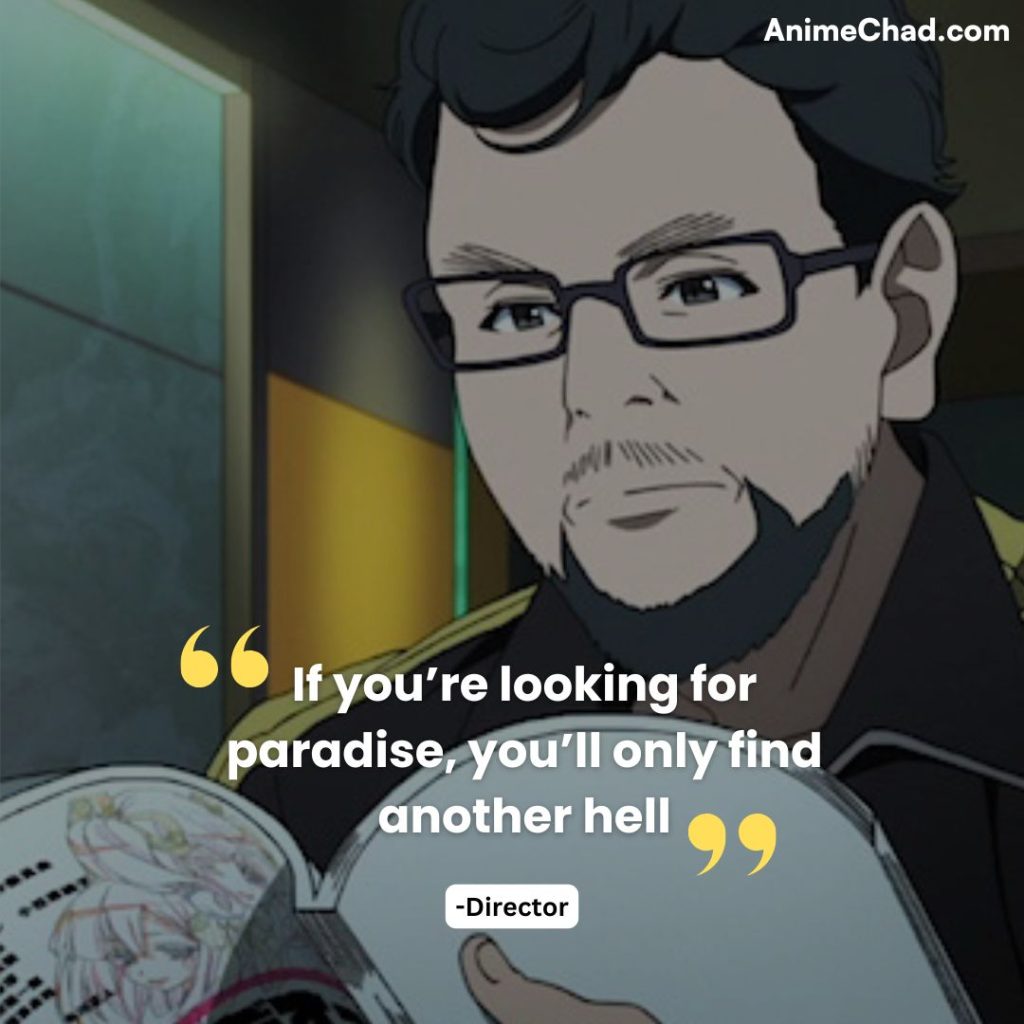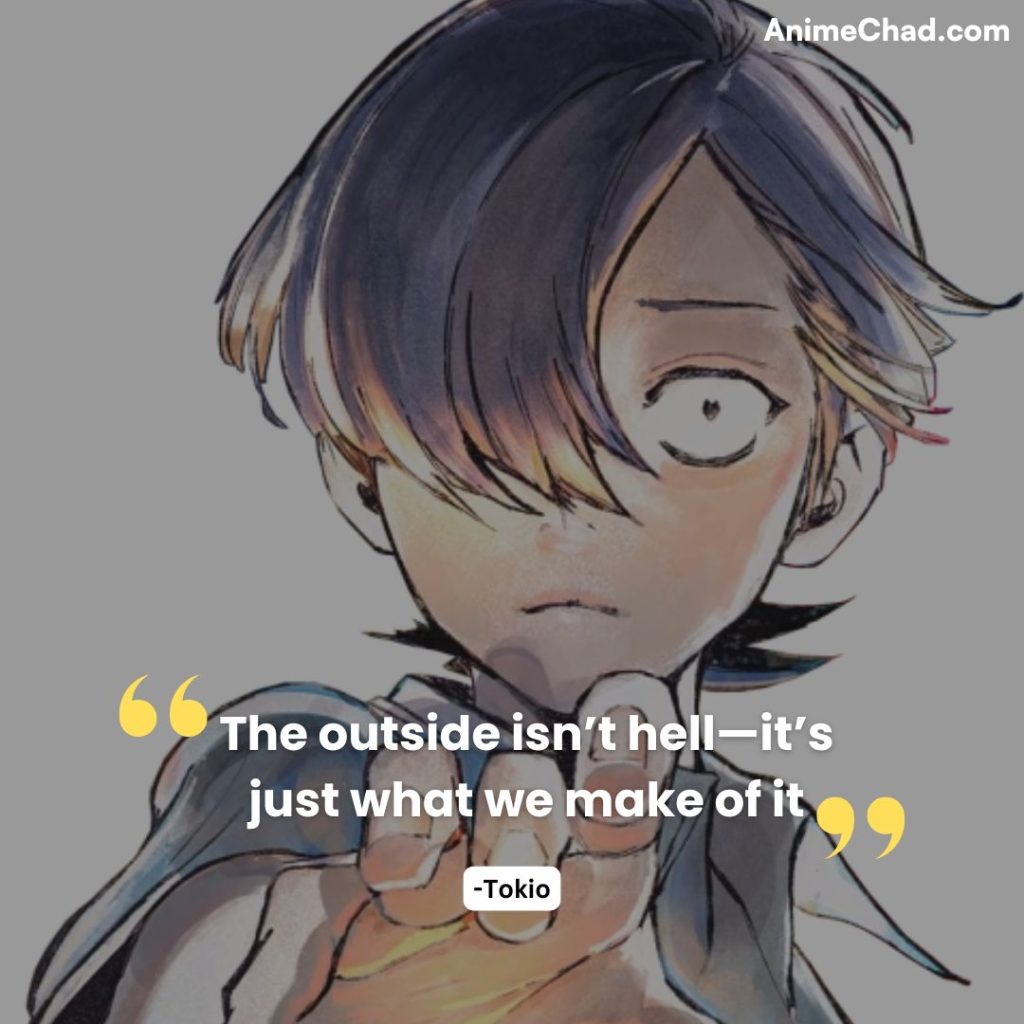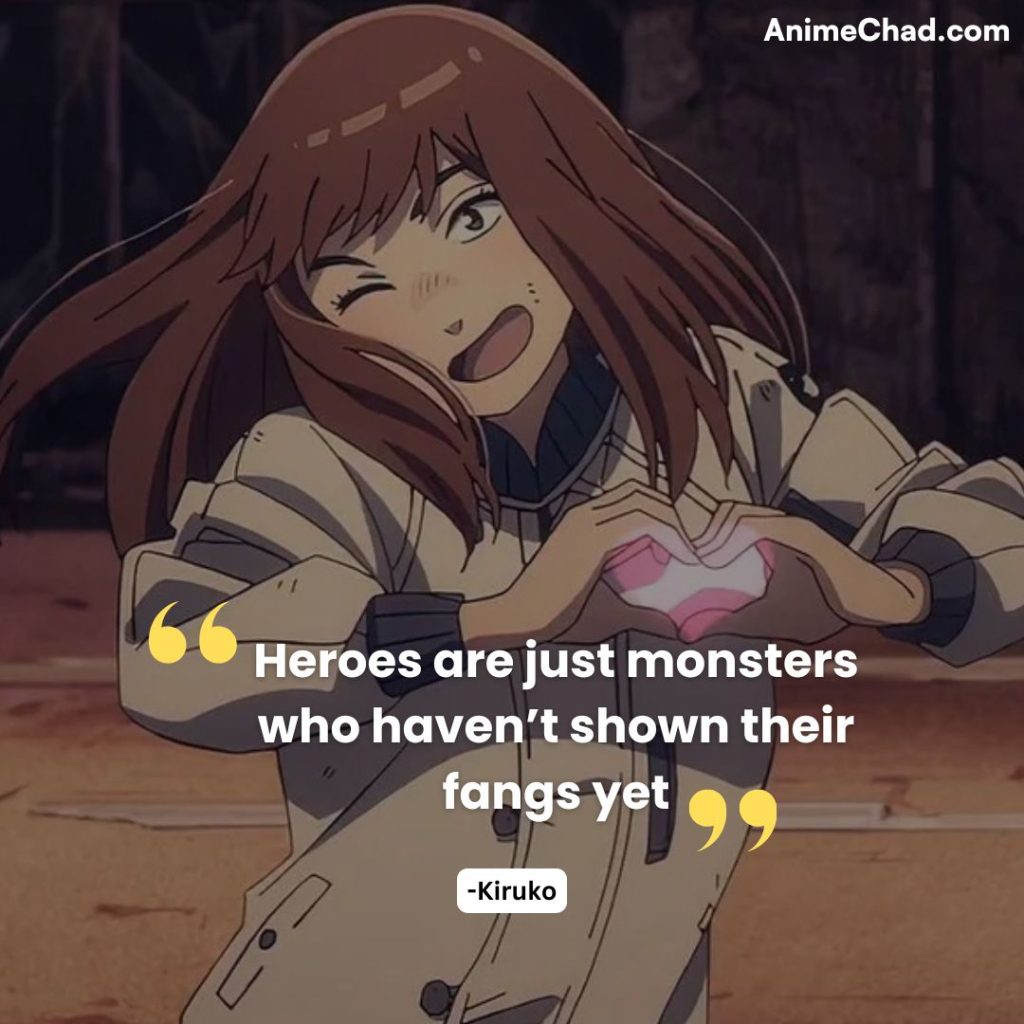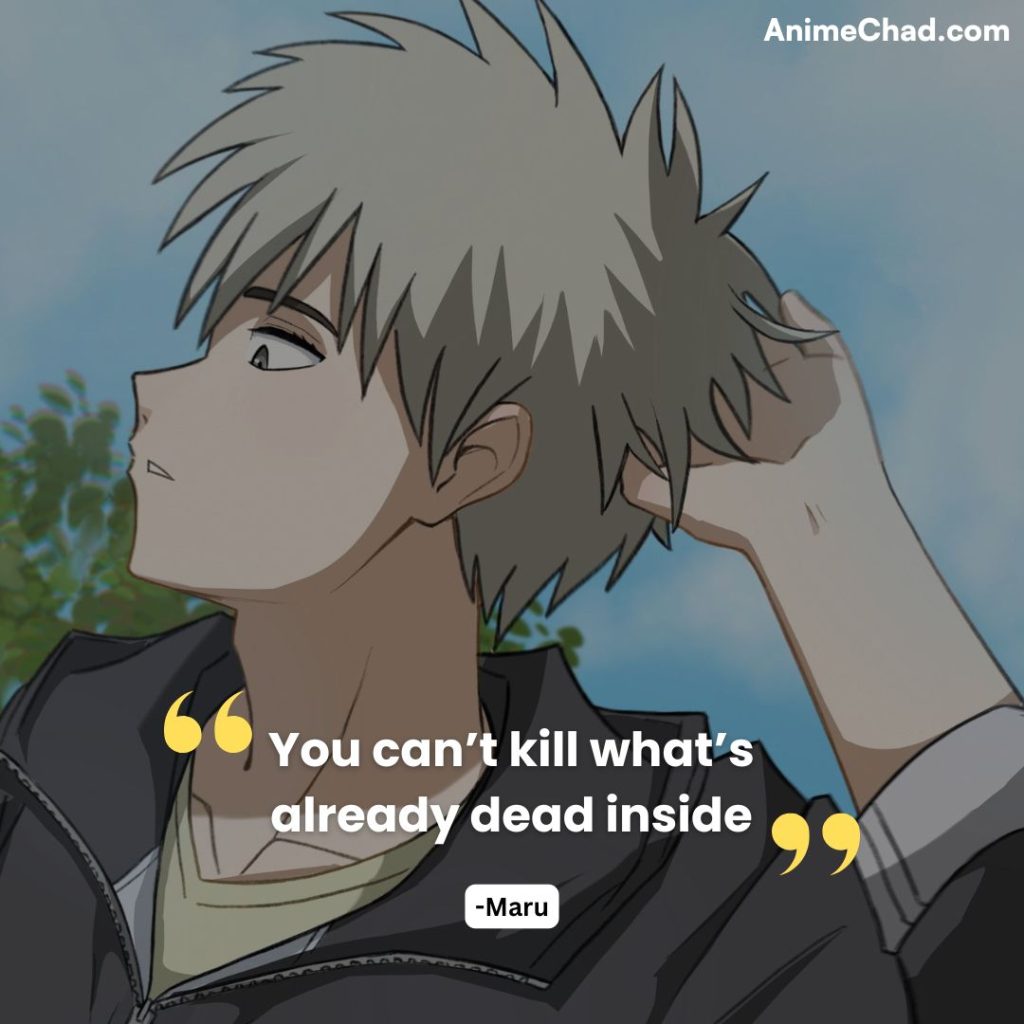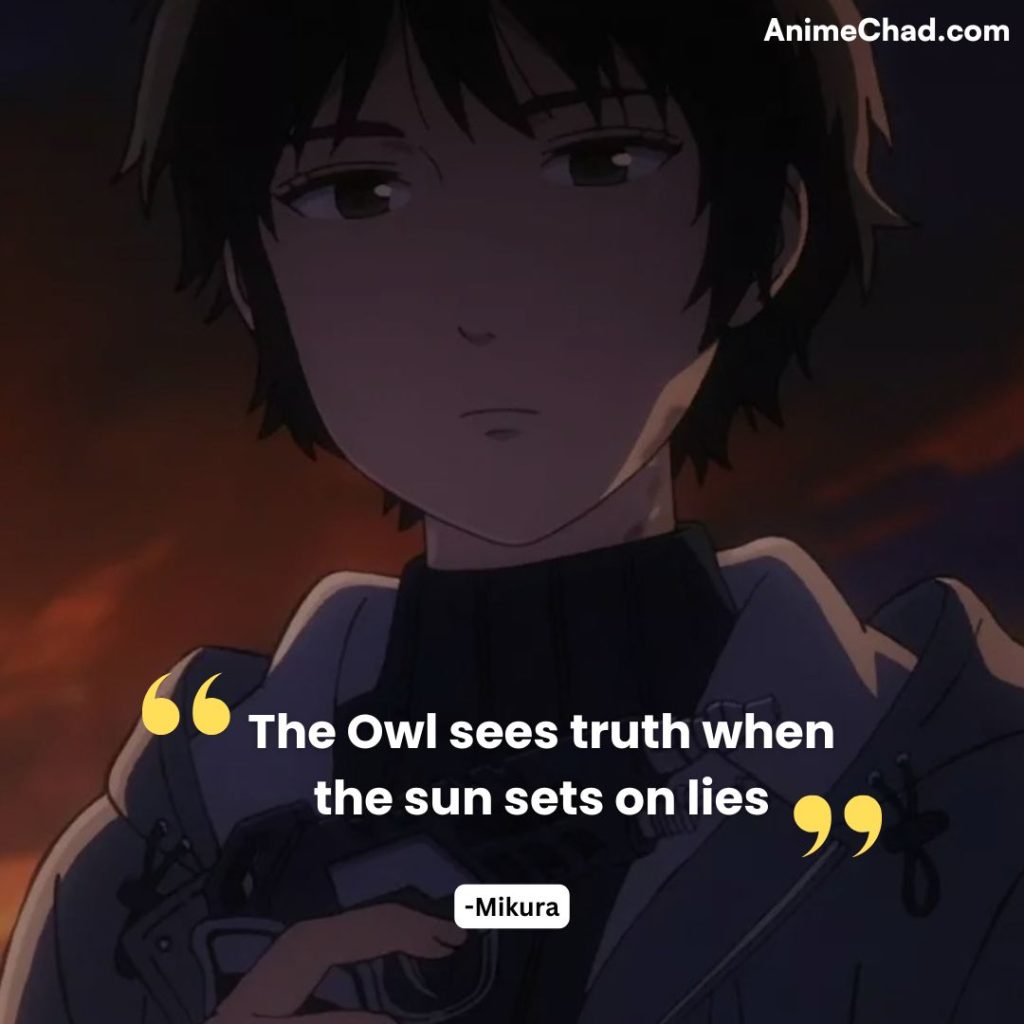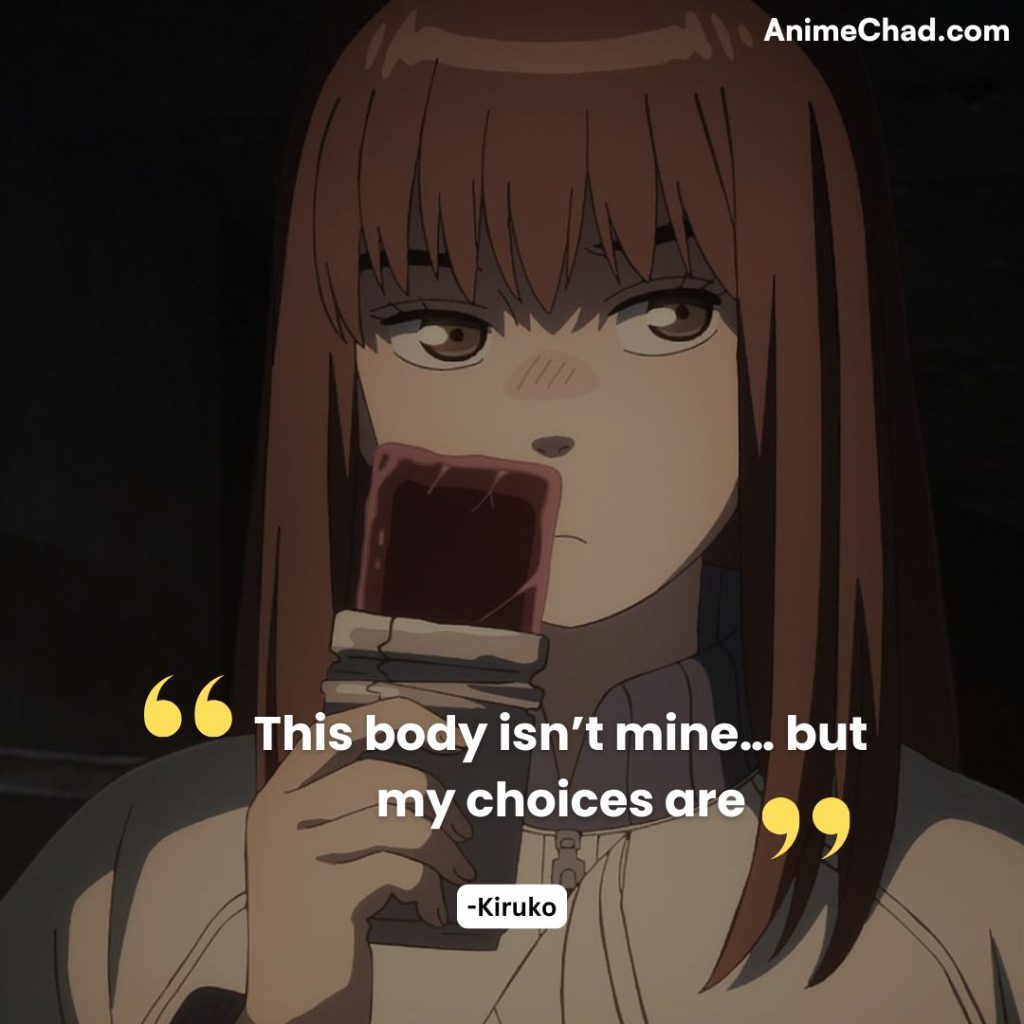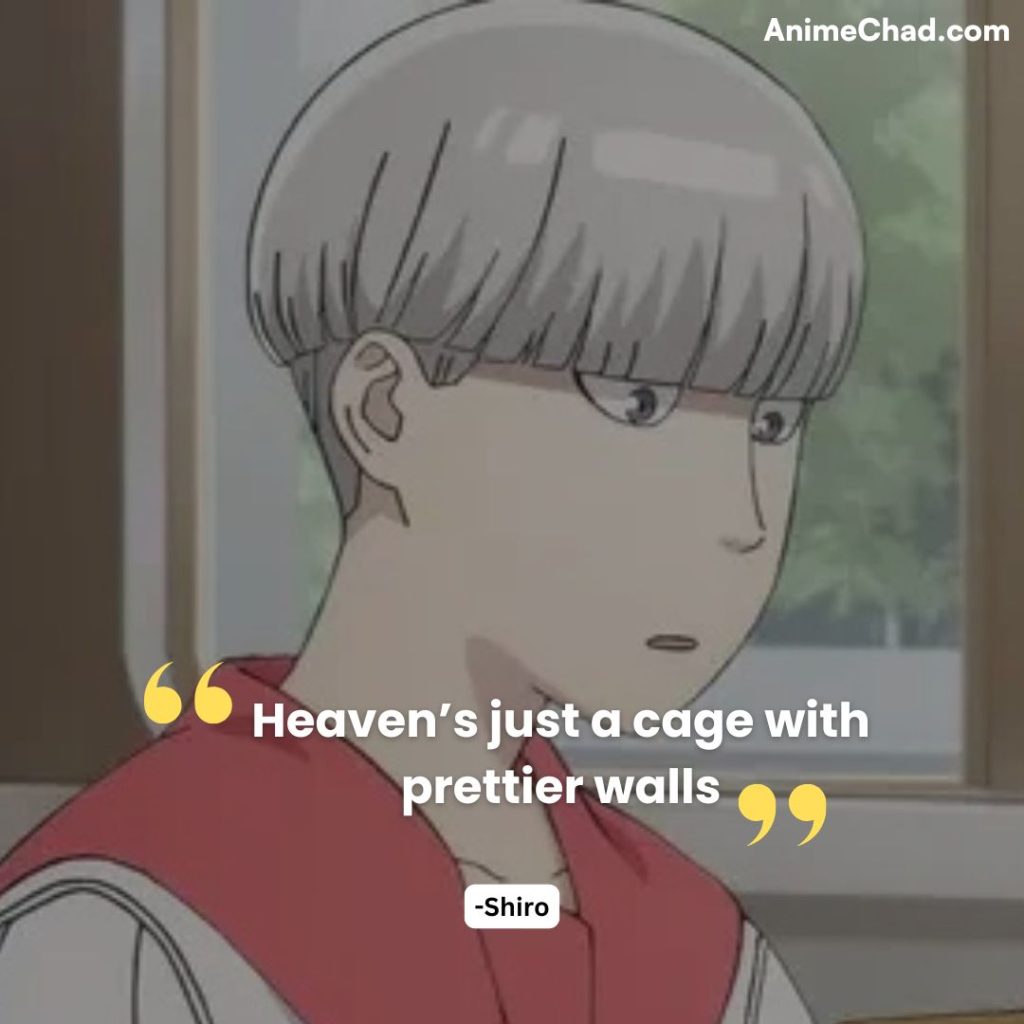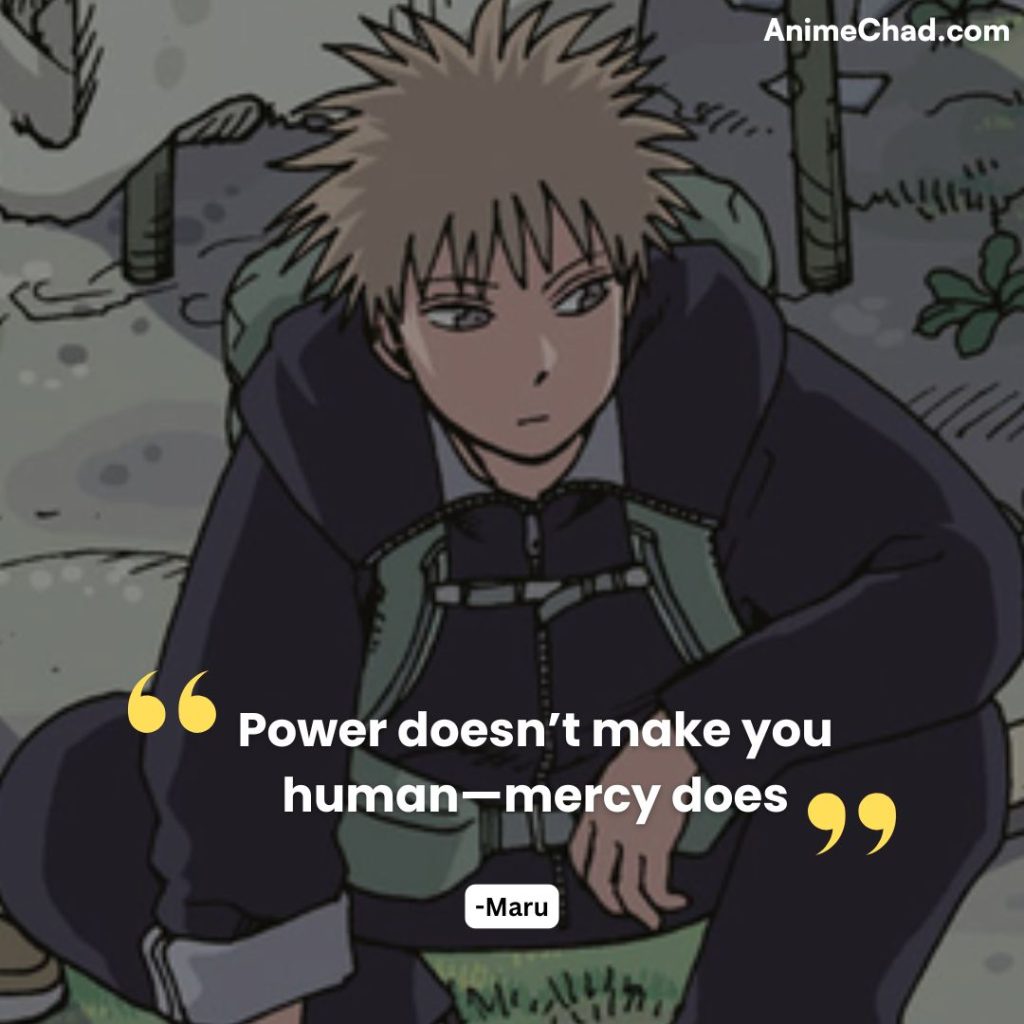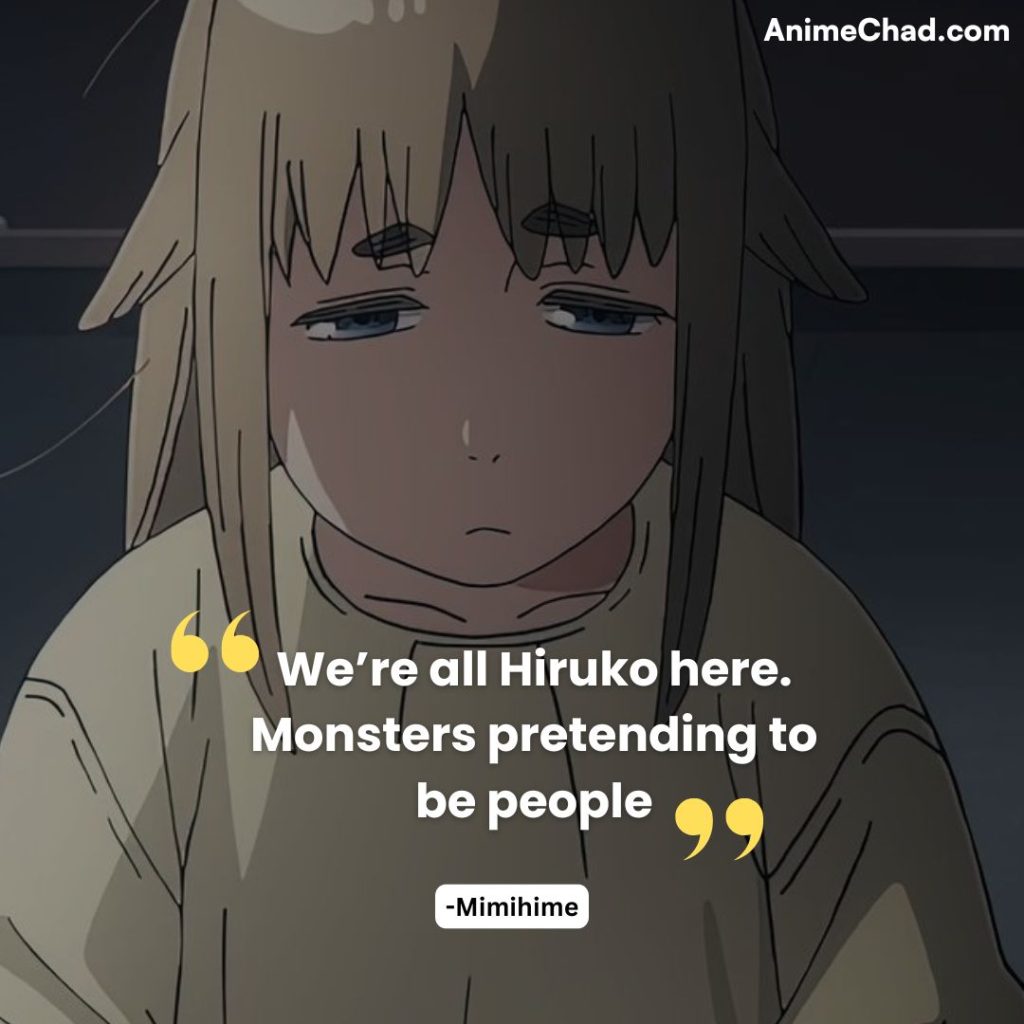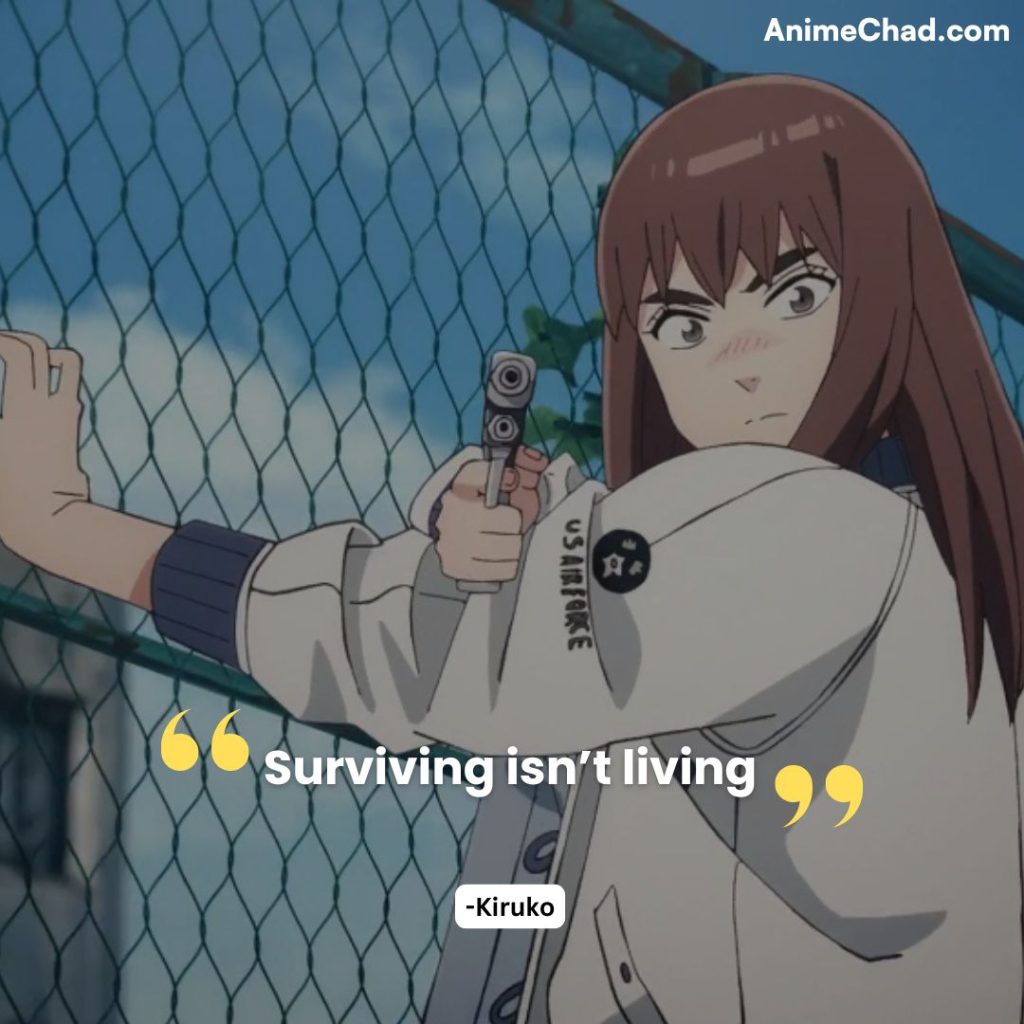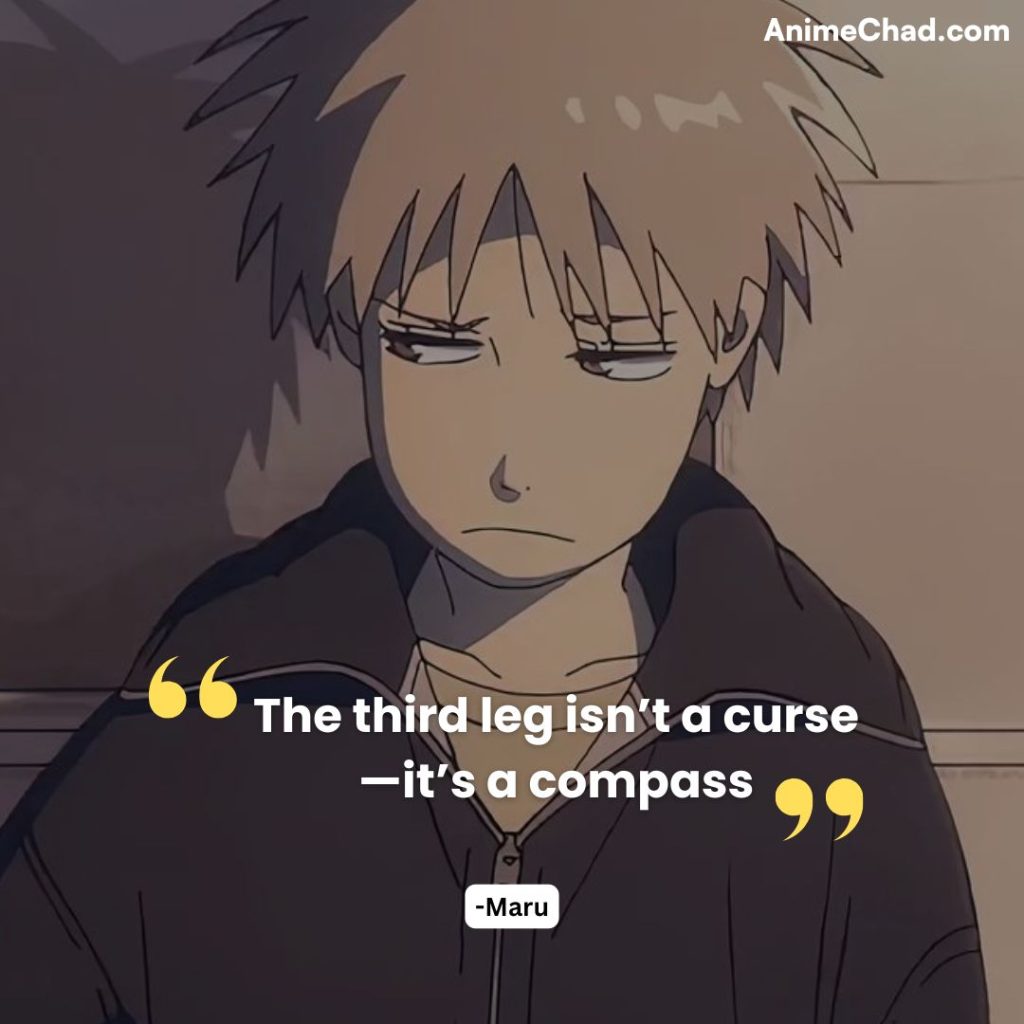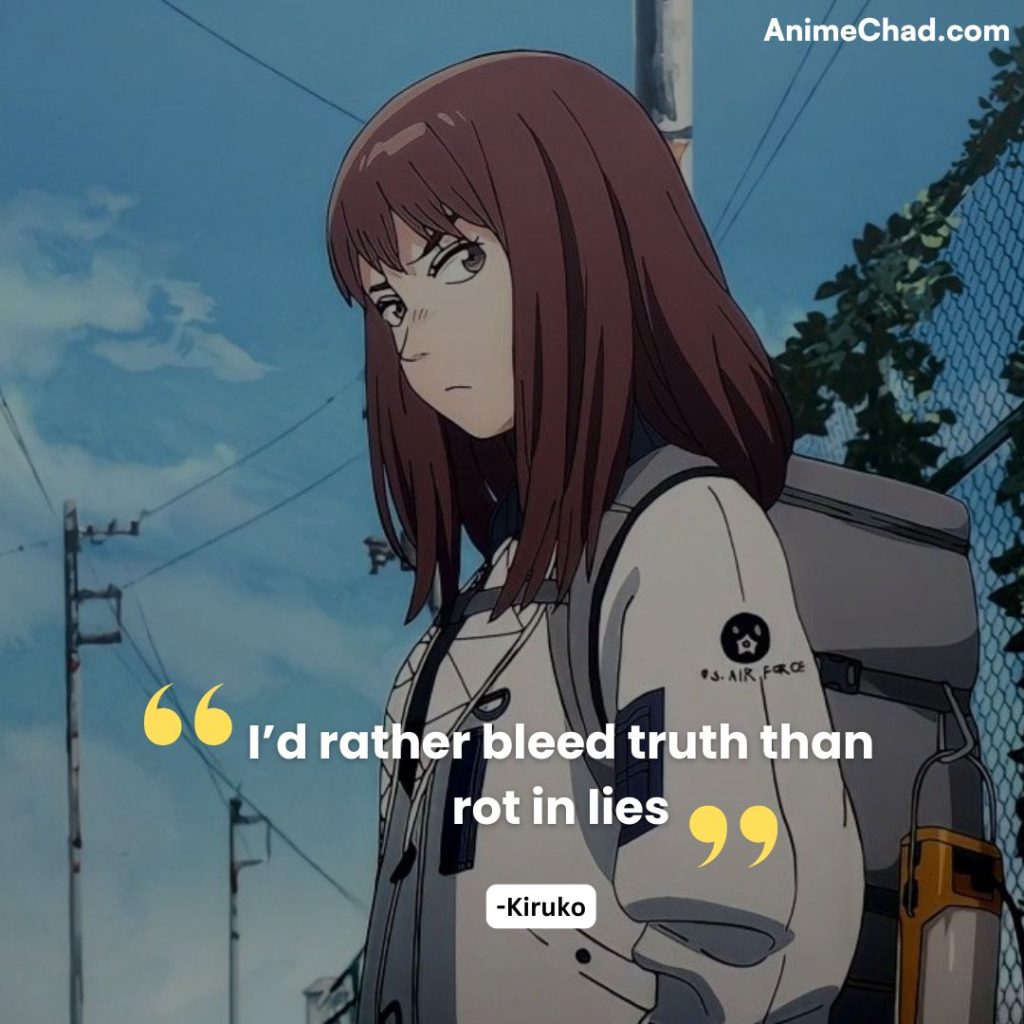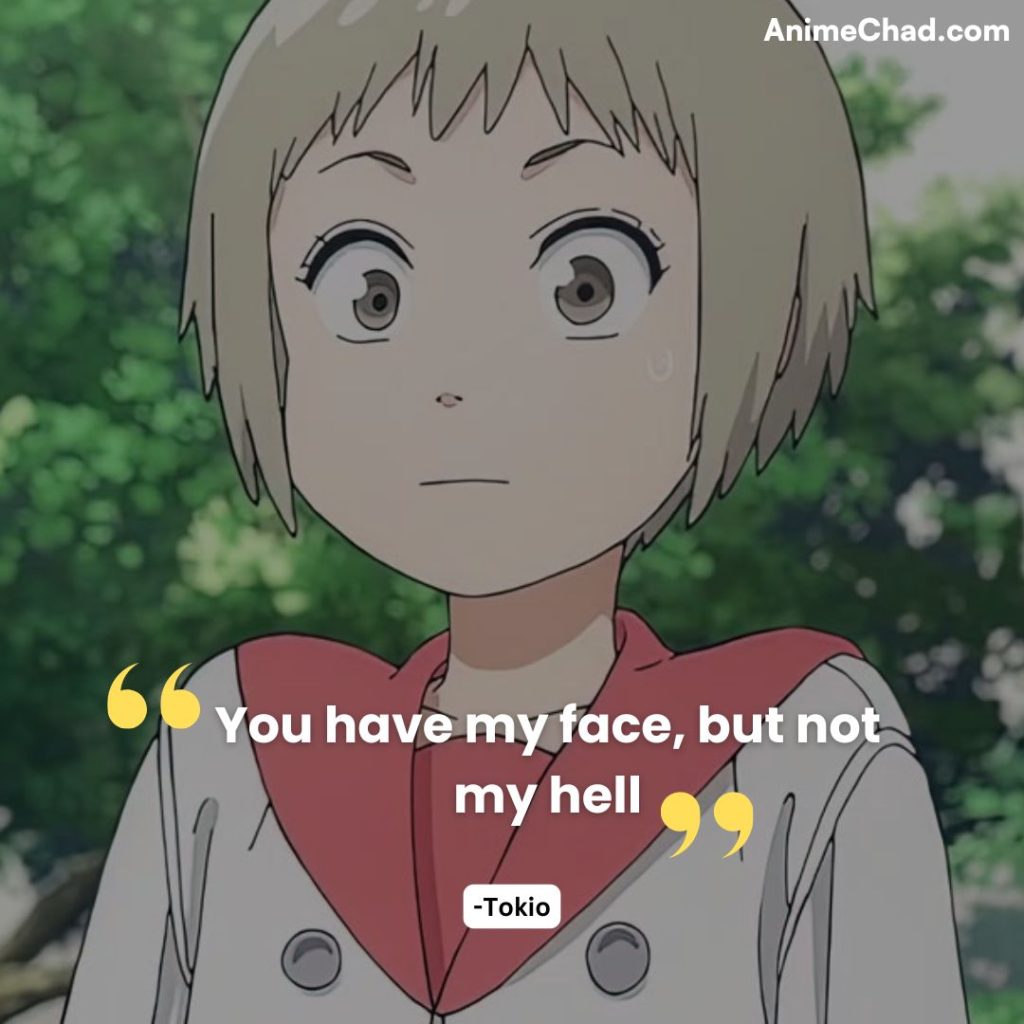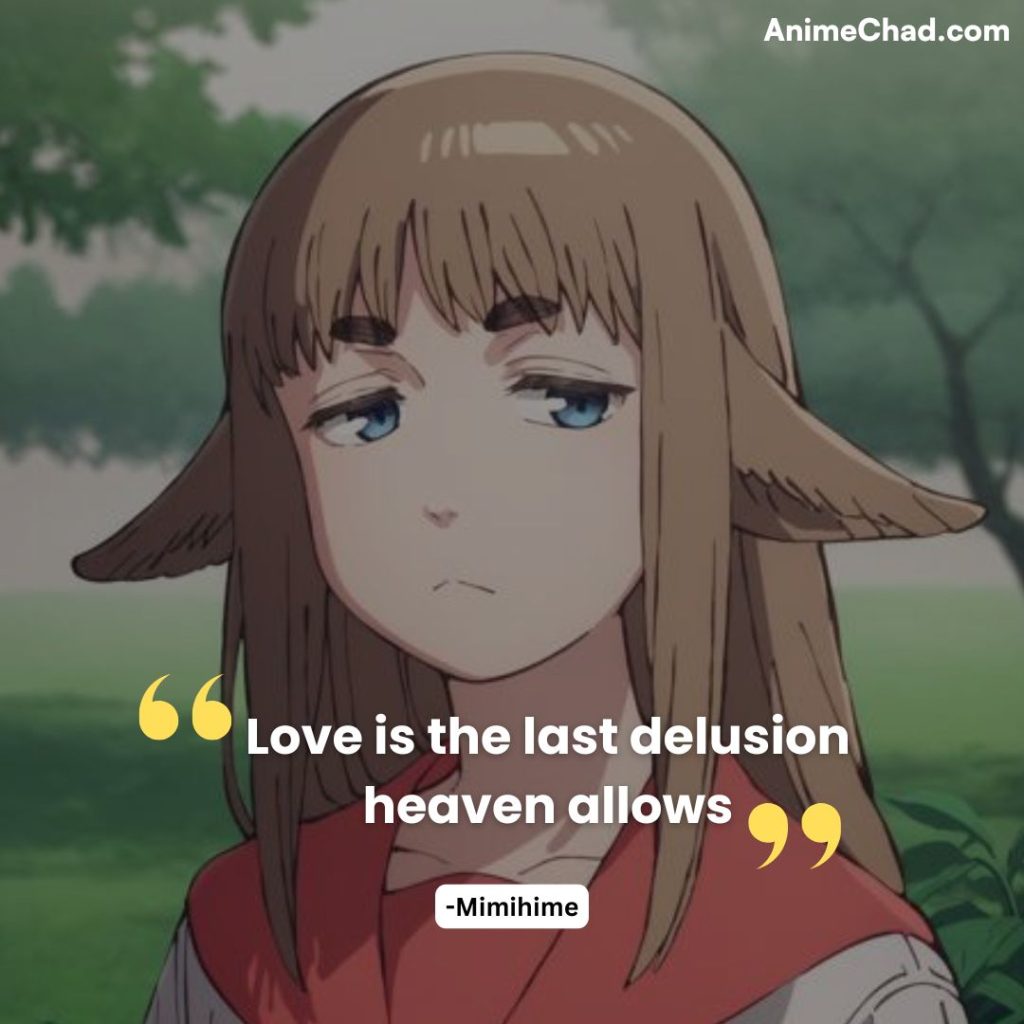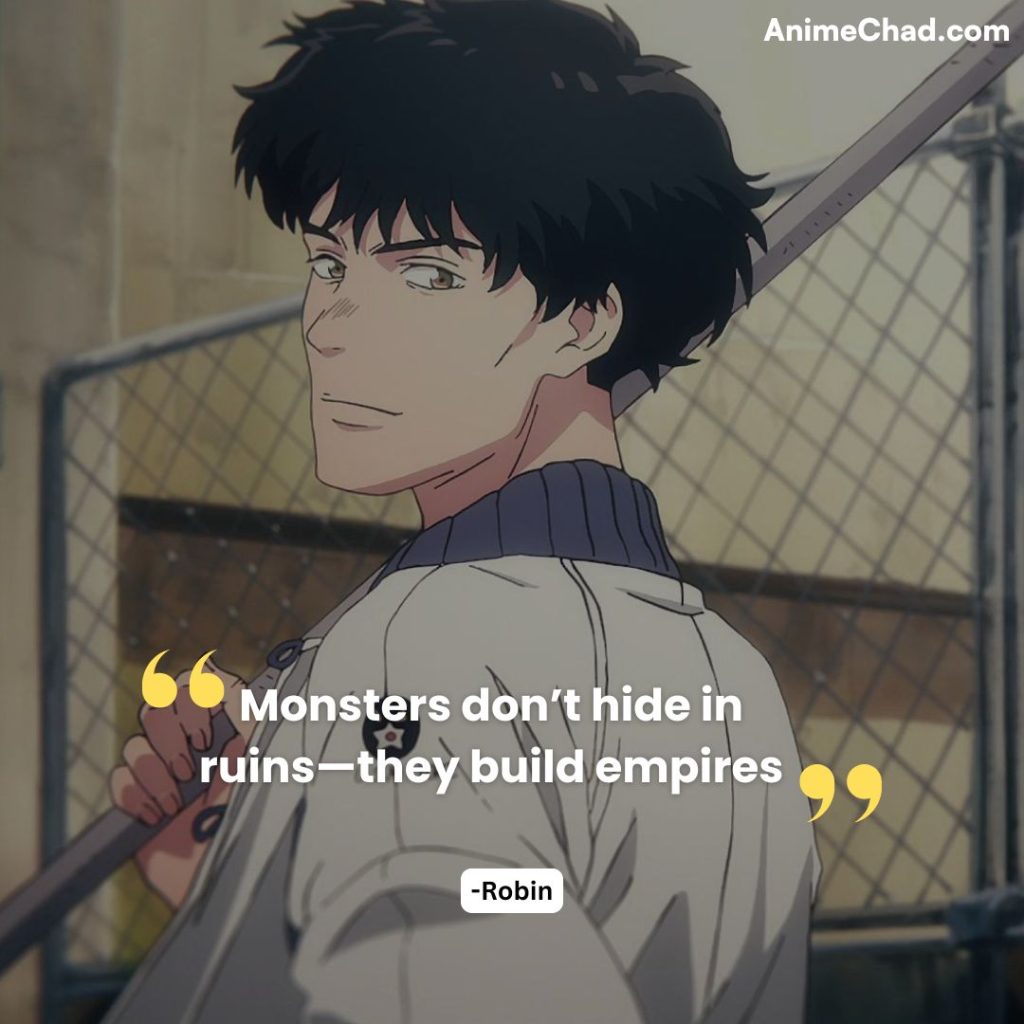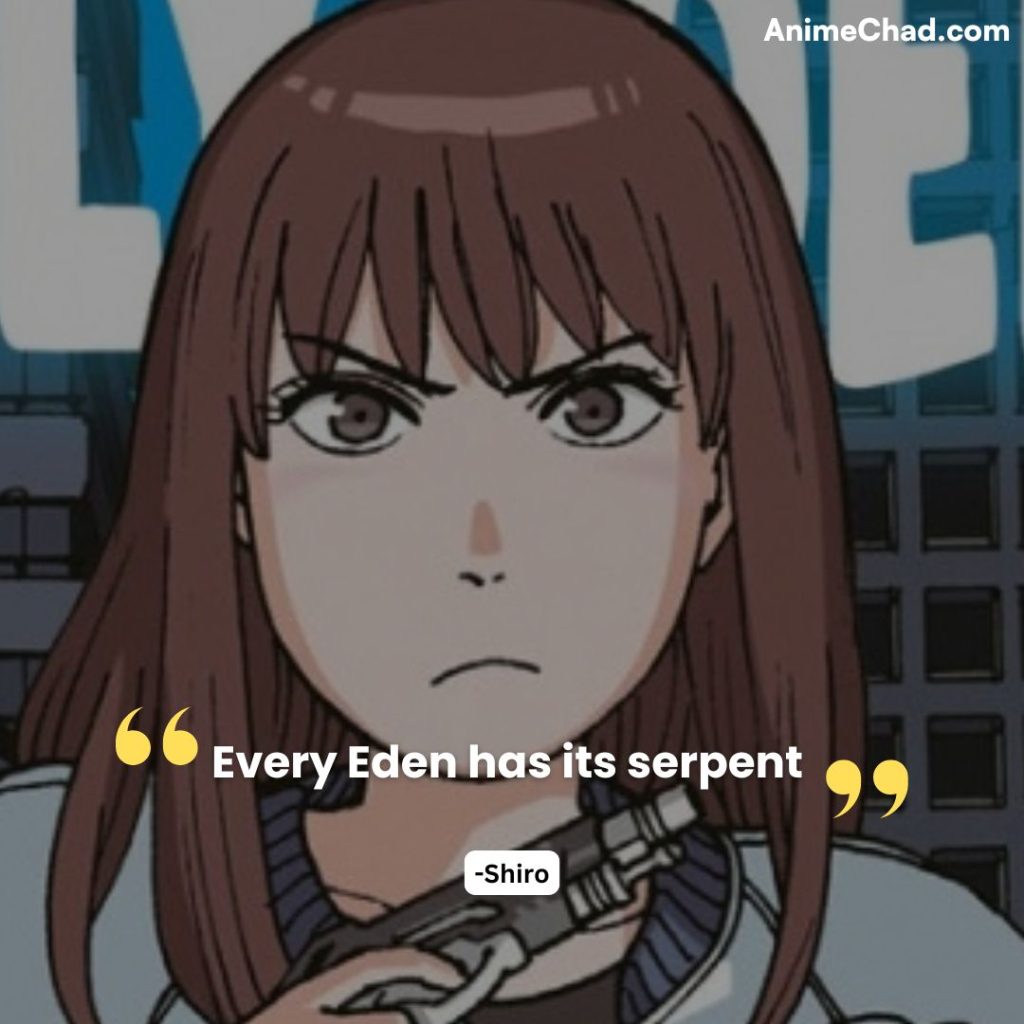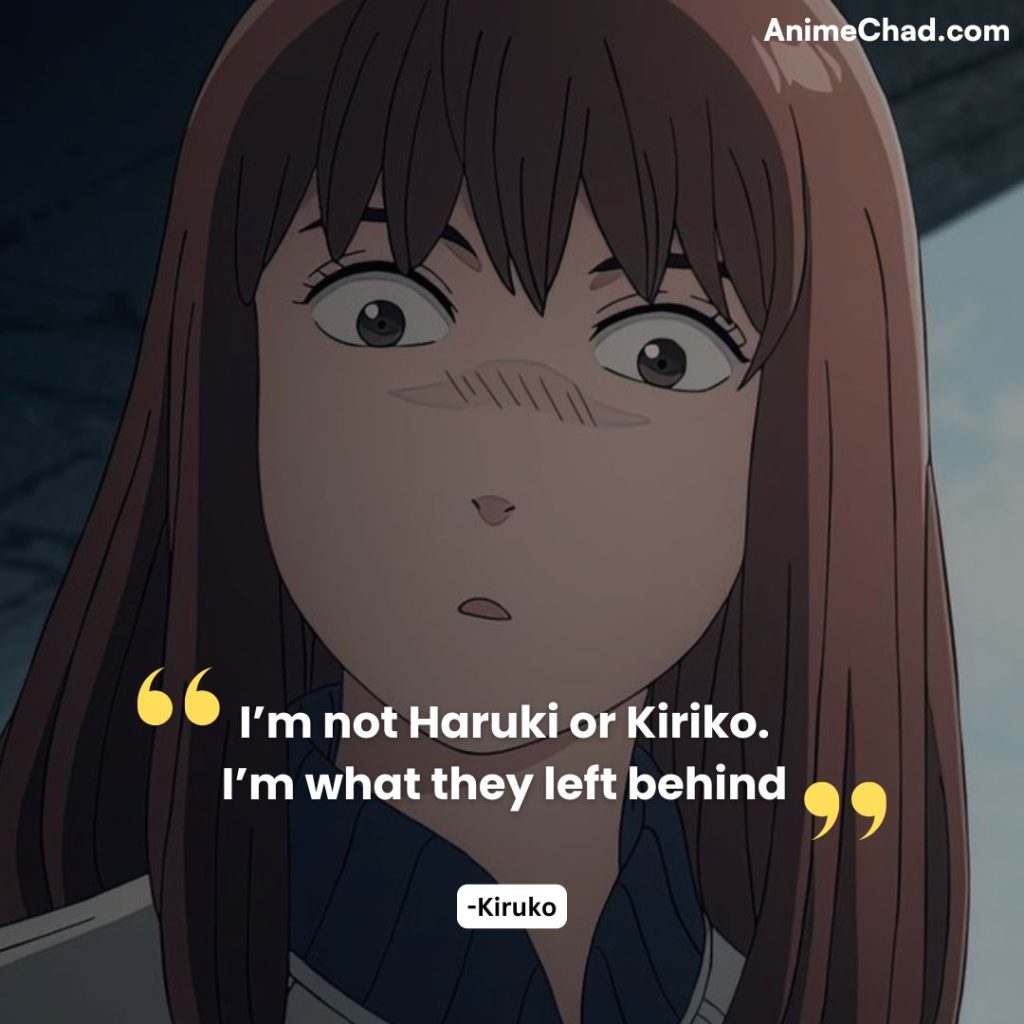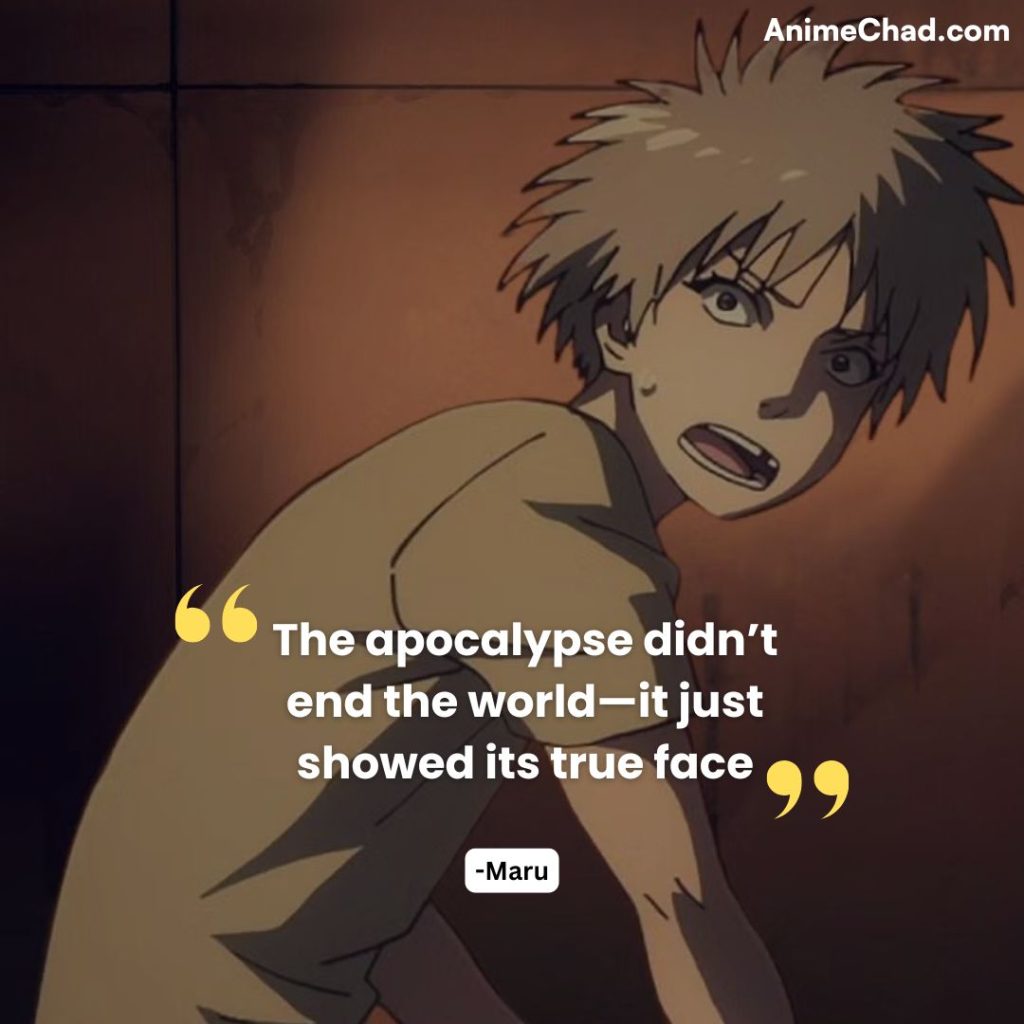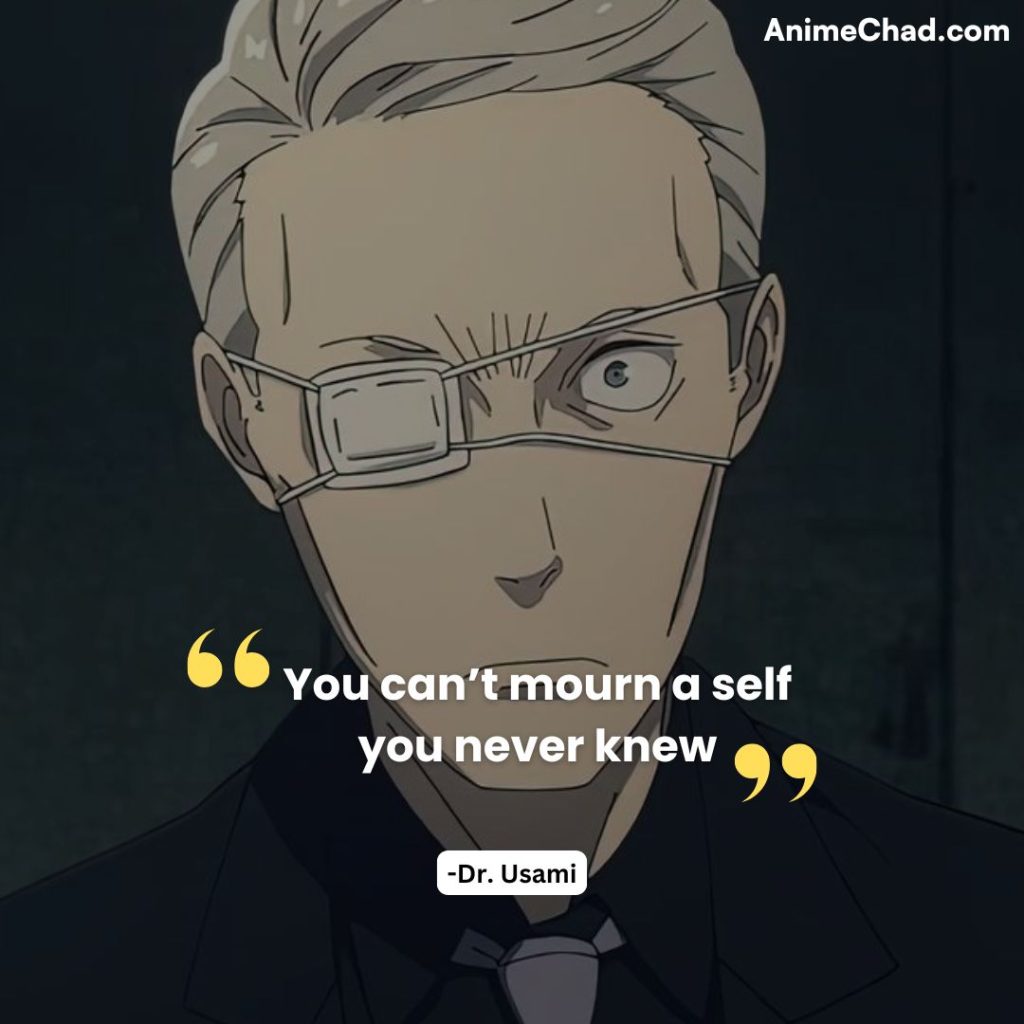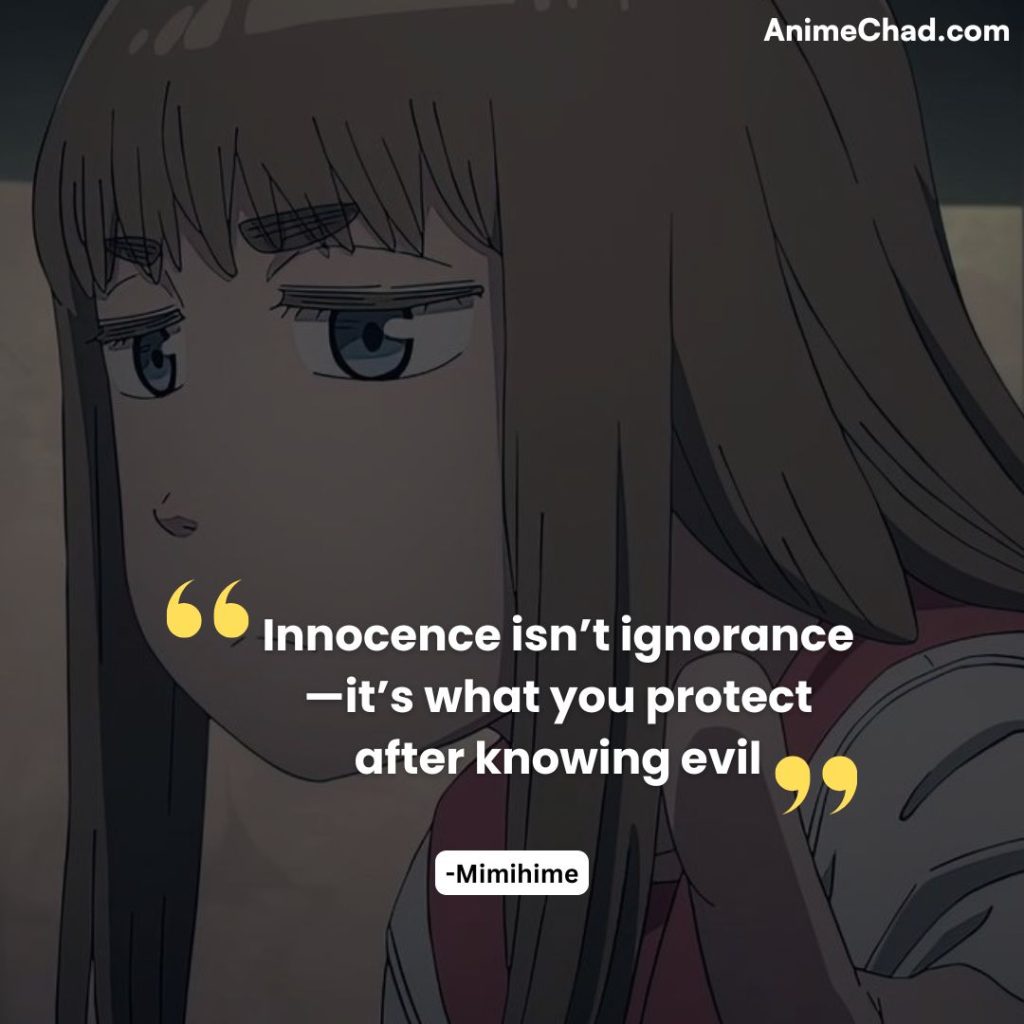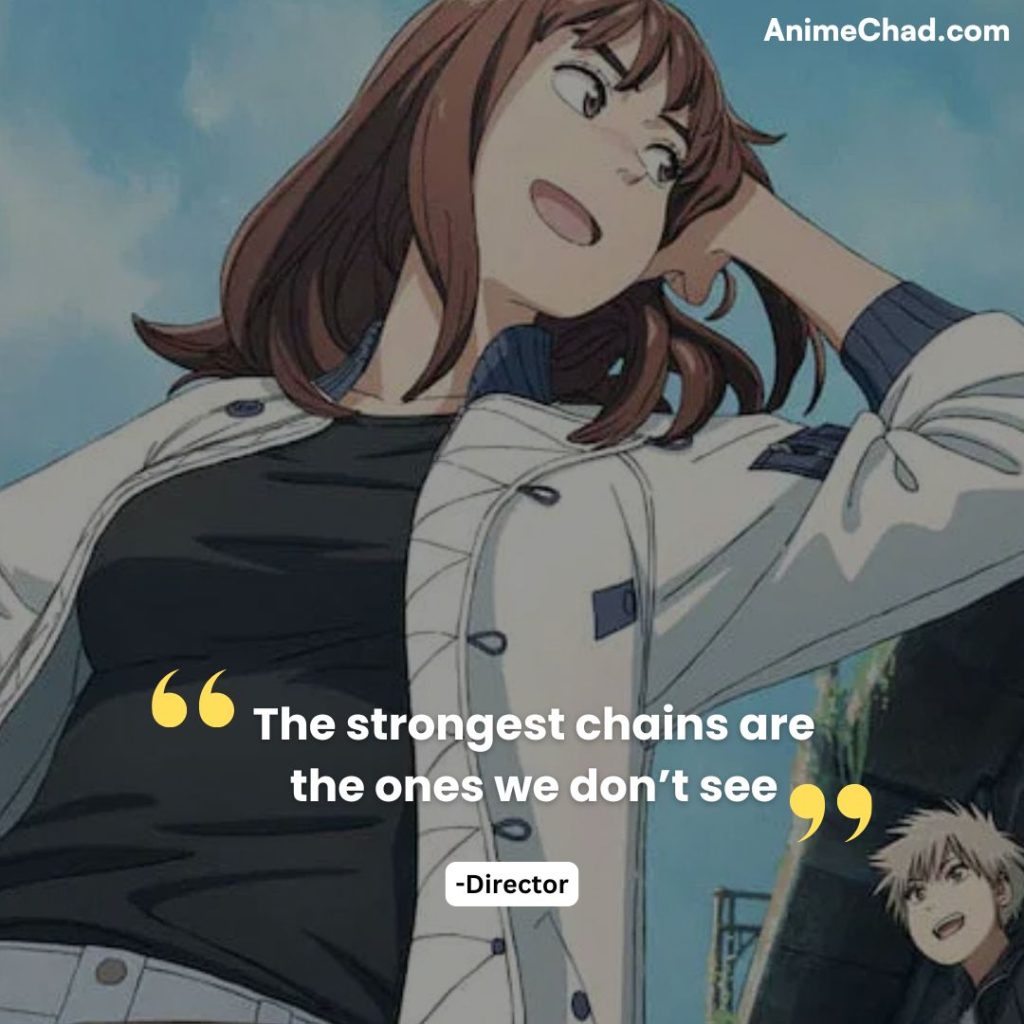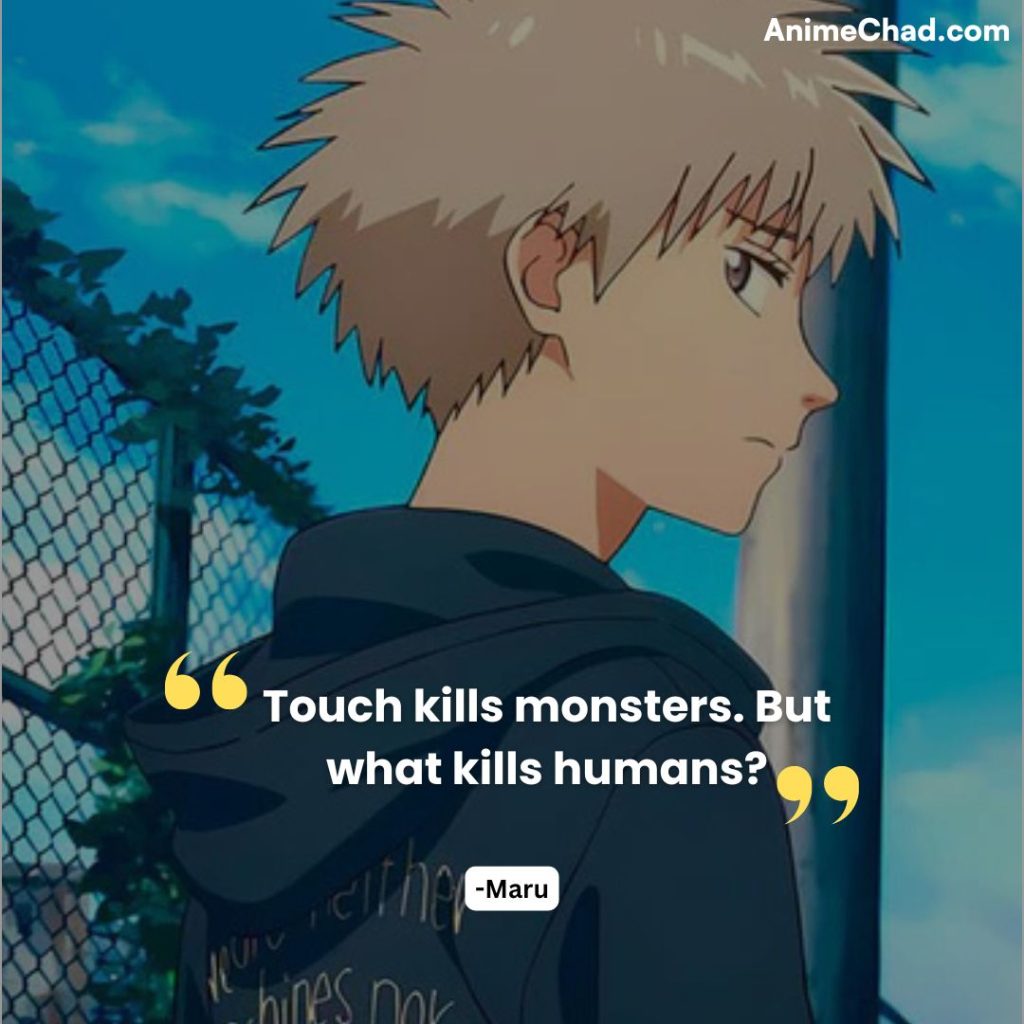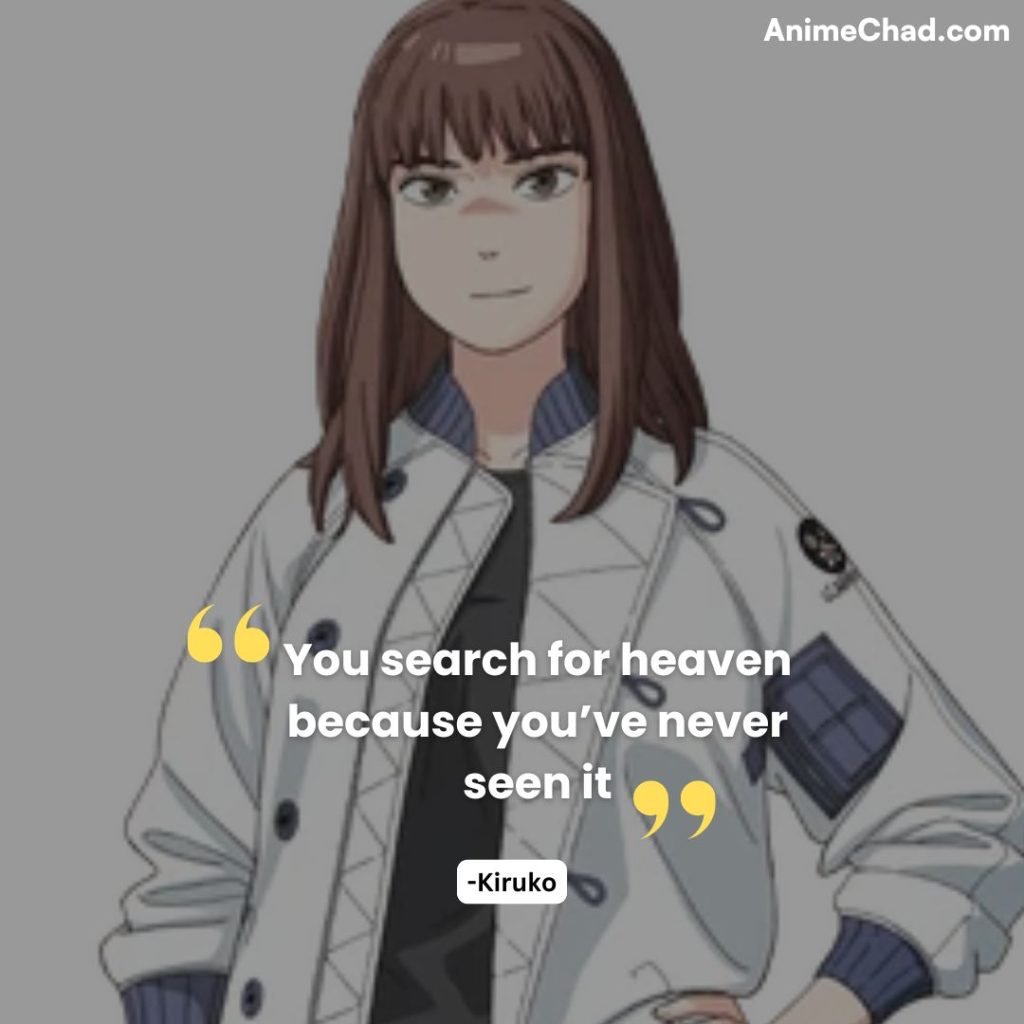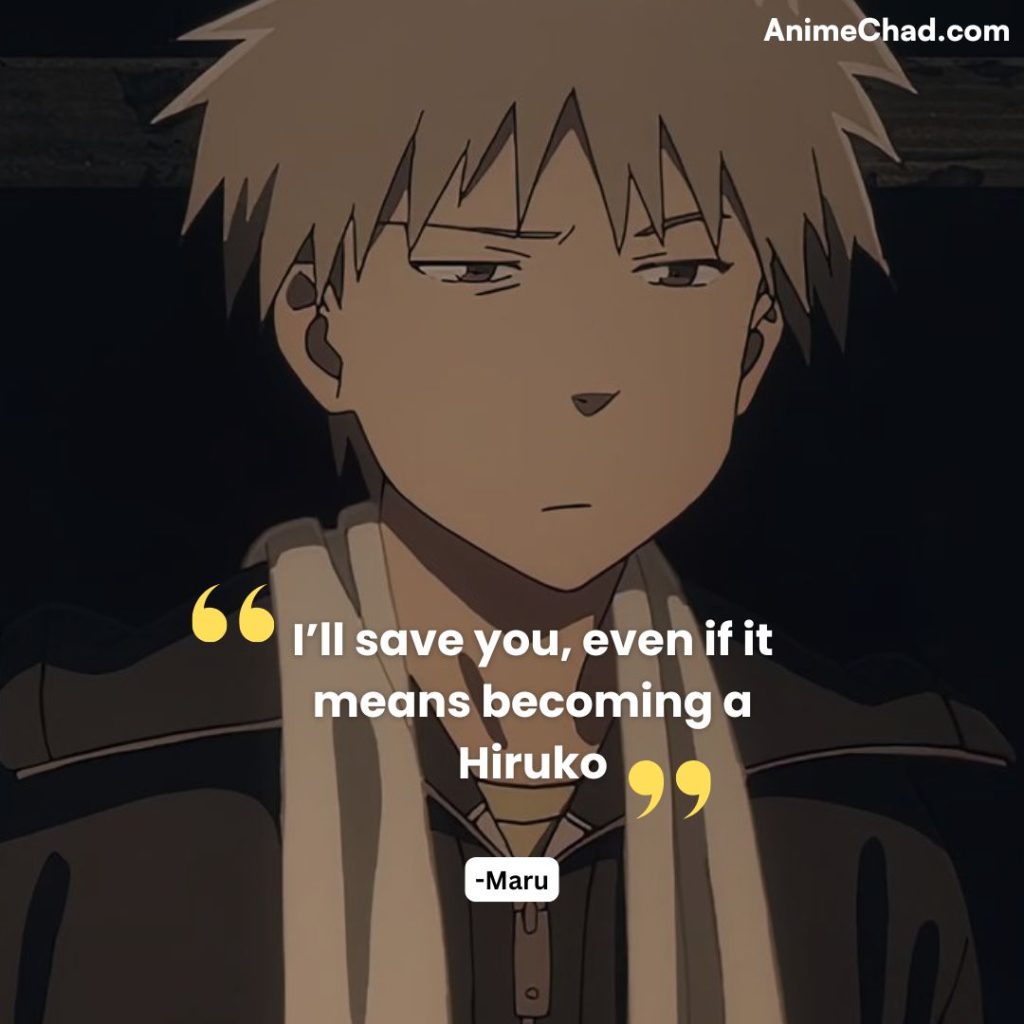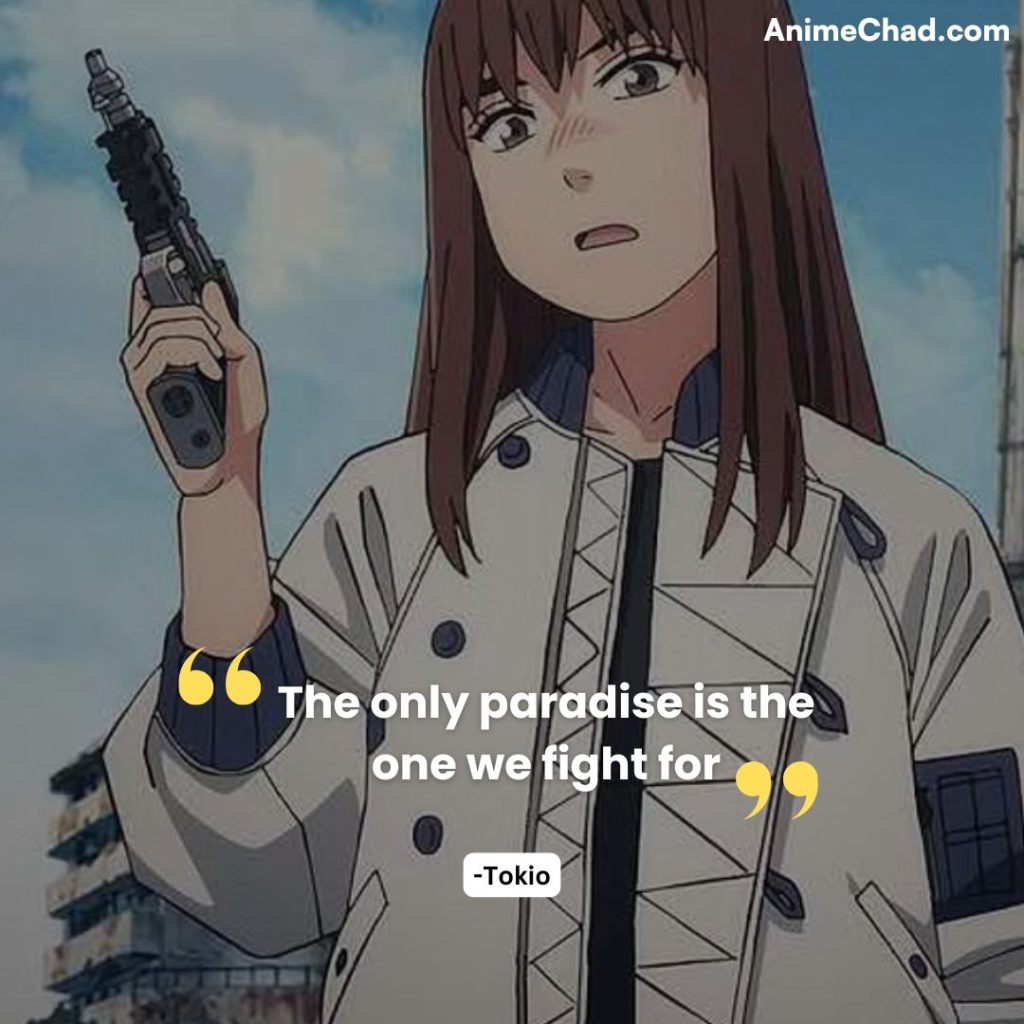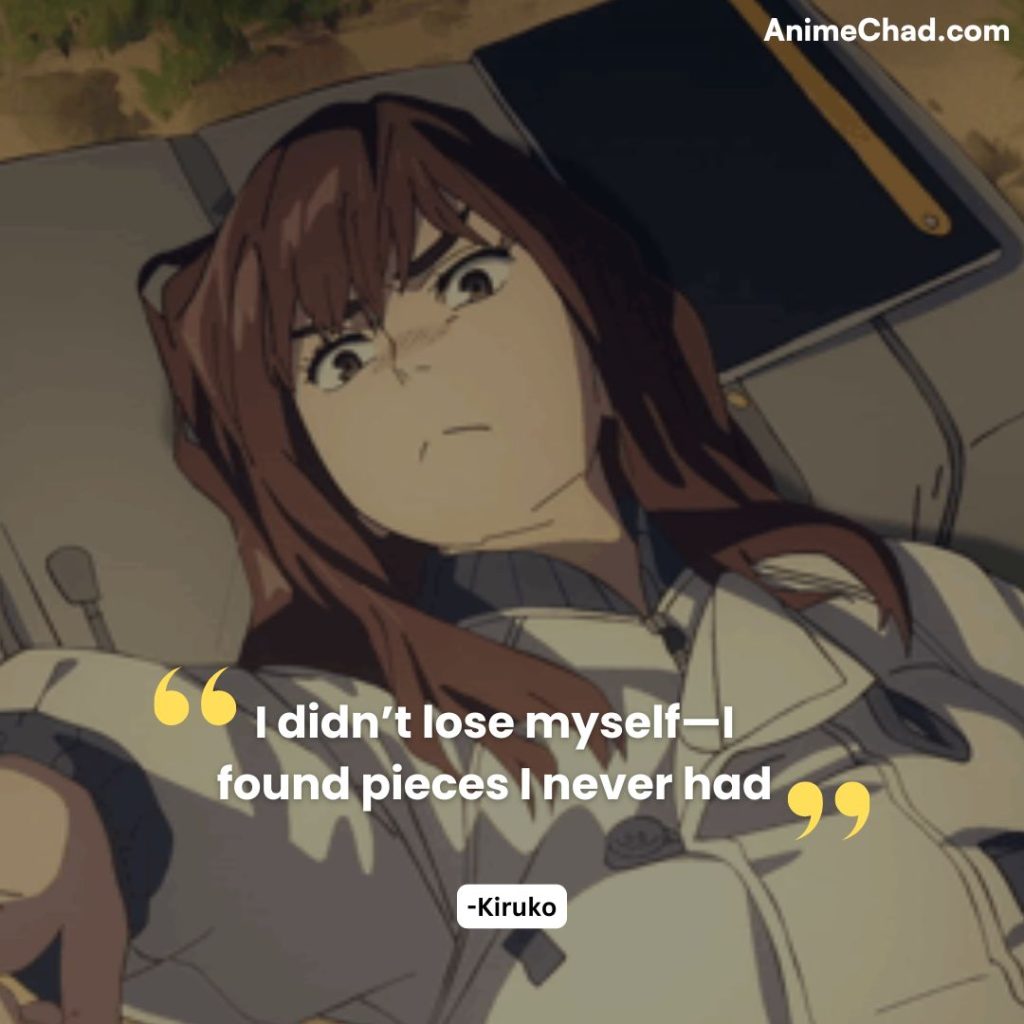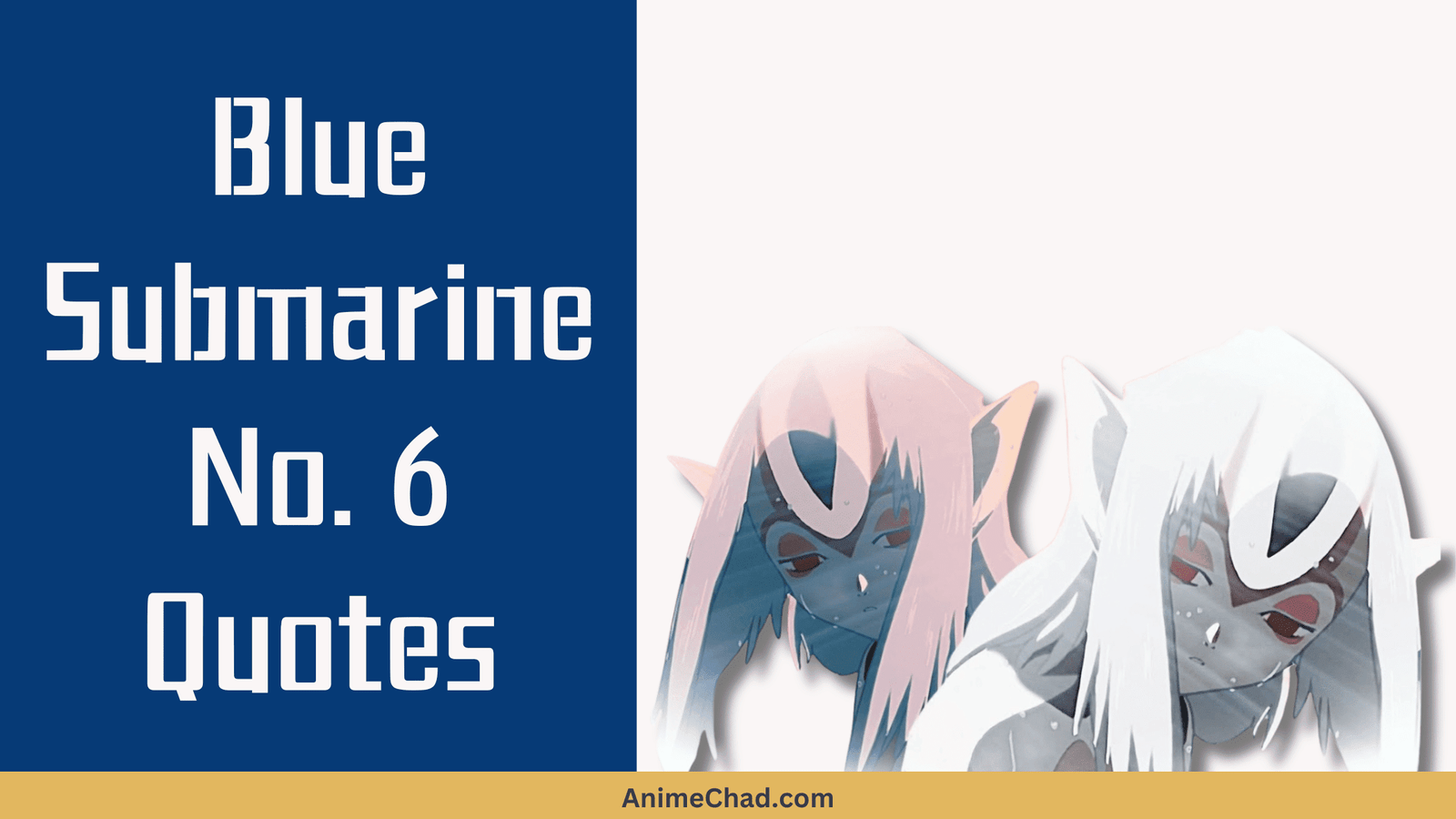Heavenly Delusion follows Kiruko and Maru’s journey through a post-apocalyptic Japan searching for “Heaven,” paralleled with children in a sheltered facility uncovering their world’s dark truths.
The series explores themes of identity, the illusion of utopia, and humanity’s capacity for both good and evil.
This collection highlights pivotal quotes that encapsulate character growth, moral complexity, and the series’ philosophical depth.
If you’re looking for paradise, you’ll only find another hell
Episode 13 (The Fall)
Director
Dispels the myth of utopia, foreshadowing the facility’s hidden horrors and humanity’s cyclical flaws.
The outside isn’t hell—it’s just what we make of it
Episode 1 (The Outside of the Outside)
Tokio
Rebellious defiance against the Director’s warnings, symbolizing hope amid desolation.
Heroes are just monsters who haven’t shown their fangs yet
Episode 9 (Robin)
Kiruko
Post-assault realization shattering her idolization of Robin, marking her loss of innocence.
You can’t kill what’s already dead inside
Episode 7 (Man-Eater)
Maru
Reflects his nihilism toward Hiruko, contrasting his empathetic humanity.
The Owl sees truth when the sun sets on lies
Episode 2 (Yatagarasu)
Mikura
Introduces the Owl of Minerva’s symbolism—divine guidance amid apocalyptic decay.
This body isn’t mine… but my choices are
Chapter 32 (Identity)
Kiruko
Affirms self-agency despite body-swapping trauma, pivotal for her acceptance of duality.
Heaven’s just a cage with prettier walls
Episode 6 (Paradise City)
Shiro
Critiques institutional control, linking the facility’s safety to oppression.
Power doesn’t make you human—mercy does
Episode 11 (The Child and the Marauder)
Maru
Rejects violence after sparing a foe, reinforcing his moral code.
We’re all Hiruko here. Monsters pretending to be people
Chapter 44 (The Facility)
Mimihime
Blurs human/monster lines, questioning humanity’s inherent morality.
Surviving isn’t living
Episode 4 (The Inn)
Kiruko
Challenges Maru’s mission, emphasizing purpose over mere existence.
The third leg isn’t a curse—it’s a compass
Episode 2 (Yatagarasu)
Maru
Reinterprets the three-legged crow symbol as hope, not doom.
I’d rather bleed truth than rot in lies
Chapter 54 (The Cave)
Kiruko
Rejects suppressing trauma, catalyzing her emotional honesty.
You have my face, but not my hell
Episode 13 (The Fall)
Tokio
To Maru, hinting at their intertwined destinies and divergent paths.
Love is the last delusion heaven allows
Chapter 29 (Mimihime’s Vision)
Mimihime
Connects love to survival in her premonition-driven sacrifice.
Monsters don’t hide in ruins—they build empires
Episode 8 (The Minister)
Robin
Exposes his corruption, critiquing power structures masquerading as salvation.
Every Eden has its serpent
Episode 5 (Gone With the Rain)
Shiro
Warns Tokio about hidden dangers in perceived paradises.
I’m not Haruki or Kiriko. I’m what they left behind
Chapter 50 (Fragments)
Kiruko
Embodies identity fusion, rejecting binary definitions of self.
The apocalypse didn’t end the world—it just showed its true face
Episode 3 (The Radio Tower)
Maru
Reframes societal collapse as revelation, not annihilation.
You can’t mourn a self you never knew
Chapter 37 (The Laboratory)
Dr. Usami
To Kiruko, addressing her existential grief over lost identity.
Innocence isn’t ignorance—it’s what you protect after knowing evil
Episode 10 (Mimihime)
Mimihime
Post-rescue defiance, highlighting resilience over naivety.
The strongest chains are the ones we don’t see
Episode 12 (The Director’s Secret)
Director
Justifies the facility’s lies, underscoring systemic control.
Touch kills monsters. But what kills humans?
Episode 7 (Man-Eater)
Maru
Philosophizes on humanity’s self-destructive tendencies.
You search for heaven because you’ve never seen it
Chapter 22 (The Starry Field)
Kiruko
To Maru, questioning their quest’s idealism.
I’ll save you, even if it means becoming a Hiruko
Episode 13 (The Fall)
Maru
Sacrificial resolve, blurring hero/monster boundaries.
The only paradise is the one we fight for
Chapter 55 (Reunion)
Tokio
Rejects passivity, advocating collective struggle for hope.
I didn’t lose myself—I found pieces I never had
Chapter 54 (The Cave)
Kiruko
Accepts her hybrid identity as strength, not fragmentation.
This selection balances visceral character moments with the series’ existential themes, emphasizing how Heavenly Delusion interrogates morality, belonging, and the fragile line between salvation and ruin.

